John Byrne On Partners Pivoting Away From Cisco, HPE, Lenovo, And Selling The Entire Dell EMC Portfolio
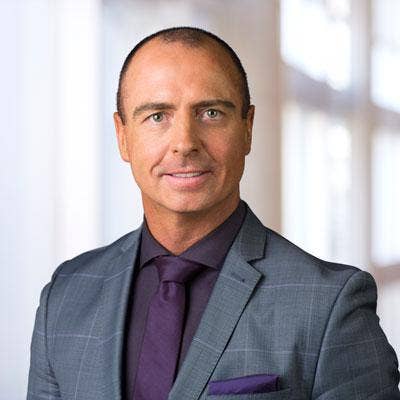
Pushing The Portfolio
John Byrne, president of global channels at Dell EMC, says partners are taking to heart the call to sell the entire Dell EMC portfolio, pivoting away from competing vendors, aggressively pushing new business opportunities, and pursuing merger and acquisition strategies in order to hasten their advancement.
Get more of CRN's coverage of Dell EMC World 2017.
How have you been able to maintain focus while integrating programs and help partners stay focused on their mission?
From the beginning, we've been overcommunicating. We've over-communicated every single step of the journey. We did include all of our partners in every single big decision that we've made. We built the program on being simple, predictable and profitable, and we really got down to what did you love? What did you not love? We pulled all this together, and there were some surprises, but they were good surprises.
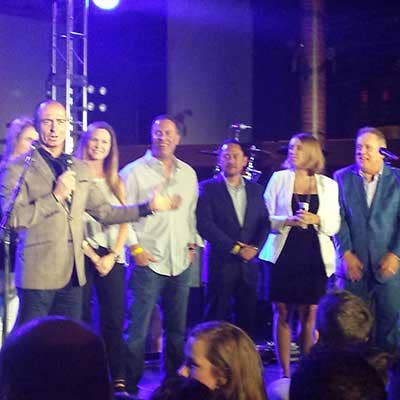
What's an example of a good surprise?
When you think back to before the acquisition was done, our competition was saying Dell is really going to mess up the EMC channel. EMC had done a really nice job on predictability of engagement. We brought out line-of-business incumbency for storage the first day we were born. No one expected that. No one.
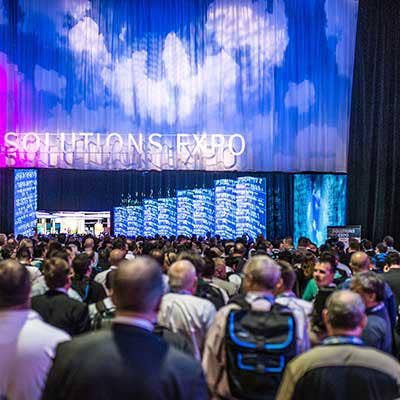
How far will you expand line-of-business incumbency?
You'll hear us talking at Dell EMC World about expanding line-of-business incumbency to [the Infrastructure Solutions Group]. Same concept, same principle. If you talk to some of the classic Dell partners who loved the profitability of the Dell program — there had been some concerns about the profitability of the EMC program — you saw that we are going to pivot and take the profitability of the classic Dell motion. You speak to them now, and they really have a line of sight to making money. People were very vocal about what they thought was the best of both programs and what they thought was the worst of both programs. I think we brought all of that together.
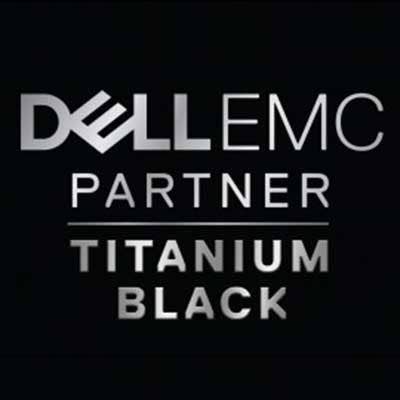
Has the creation of the Titanium Black designation for elite partners had the effect you wanted? Are partners excited by it?
I would say it's the No. 1 question I get asked: 'How do I become Titanium Black?' When you have this kind of concierge key status, it's an interesting balance between excitement and exclusion. You have to make sure you don't get into the exclusion part. We have partners who were on the cusp of Titanium Black. There are a couple of Dell partners who are selling hundreds of millions but were not selling the full portfolio, and they are now building a plan to aggressively build the skill set and focus on the full portfolio to give themselves the chance to be Titanium Black. I had exactly the same thing with a couple of EMC partners who were doing hundreds of millions with EMC. One is very, very good at selling servers, just not Dell servers. That partner is aggressively trying to move business to us and at the same time is looking at an M&A strategy. There's definitely prestige around [Titanium Black]. They love the access it gets them to people like Michael [Dell], like our CTOs, getting the inside scoop. I think all the partners should be striving to get there. We wanted it to cause excitement, and it has caused a lot of excitement.
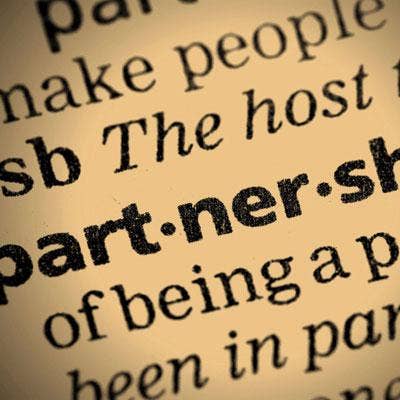
How much of that movement have you seen where partners who want to advance through the Dell EMC program are pivoting away from selling products from HPE or Cisco or Lenovo and bringing that business to Dell EMC? Is that a common occurrence?
Yes. It's happening, and it's happening fast. People can see it. This is a different pulse, a different beat. It's moving fast, but you can also realize where there's opportunity. When you speak to the partners, and you walk them through where we're going as a company, and our commitment to the channel — we're $35 billion in the channel — we're growing faster than the market, but I still only have double-digit share of wallet. Look at the portfolio we have, the true end-to-end portfolio that I don't think anyone else in the industry has. We're investing aggressively. We're engaging better. The partners can just feel it. The only thing that can stop us being successful is us. We're going to execute. We're always watching the competition. We're watching every move they're making so we're not resting on our laurels. Far from it. There are lot of partners doing the training, expanding their competencies. There's a number of partners looking to M&A. We've got a clock going that says in a year's time this is where we want you to be, and it's accelerating some of that focus.

That's a big step for a solution provider to take, especially when it's prompted entirely by the desire to do better with Dell EMC.
It's exactly the strategy we've laid out. I will take minimal credit for it. It was actually one of our Partner Advisory Board members who said, 'Look, why don't you give us a chance? Give us a year to get fully aligned and we'll get aligned, maybe organically and maybe through M&A, but if you're prepared to invest, we're investing and we'll do the right things.' It's happening, and the credit goes to a great [Partner Advisory Board].

How successful have partners been in delivering the things you need?
We're eight weeks into the program, and right now, the scorecards are all lighting up green across all lines of business. The leading indicators right now say it's going well. The other thing to keep in focus is that I'm not one of those sales executives, nor is this one of those companies, that when things don't go well we'll pretend that everything is OK. Just like you want to talk about the good stuff, you have to admit that there's been a couple of bumps. We said back in October that the sign of a great team is not when you're winning. It's easy to be great when you're winning. When you face challenges, the great teams are still standing in the corner working as a team, and I think we've done that. Was the portal a little bit delayed? Yeah, but we communicated with partners, and they got it.

How has the integration gone as far as pushing partners to sell across the entire portfolio is concerned?
We're trying to connect the dots. A lot of partners were very aligned to the old EMC team, and now we're encouraging them to sell much more of the portfolio, and we're helping them connect the dots with the legacy Dell people. If you were a legacy Dell partner, and you've done a great job and you want to be connected into the enterprise space and you want to be connected with a legacy EMC person, how do you connect the dots? The refinement is moving along. In client, we're moving toward 17 successive quarters of share gain. We took more share on server. We're leading in converged, leading in hyper-converged. Leading indications are solid. We're excited. We'll be defined by how we execute.

What are the keys for partners within the portfolio? What's hot?
Converged is incredibly hot. Converged is growing. Hyper-converged is growing. Software-defined is clearly growing. Virtualization is just going crazy. Clearly, flash. All the areas we see the market moving towards, we're making huge progress. In the PC space, the technology we're bringing to the PC space is spectacular. Services is the pot of gold, and partners are realizing that they want to be attaching services because they can see how much money is available. And you've got to sell the PCs and the servers. We continue to be No. 1 in those spaces.
You're going to hear us talking a lot about here's where we are today, here's what we want you to do, here's how we'll be relevant in the future, and it is selling more of our portfolio, attaching services, winning new customers and here's how we'll pay you for it.
How do you balance the need to help partners evolve with the need to keep them aggressively selling the existing Dell EMC portfolio?
Partners want to be relevant in five years' time. They want to be relevant in 10 years' time. As we're clicking through the gears on the digital transformation, what does that mean for the partner? I don't want to get ahead of my skis, but I want them to know how we're thinking about it and get back to let's sell what we have today. We're No. 1 in everything all in one place. We want you to sell and we want you to make a lot of money doing it.

What announcements are you making at the conference?
Flexible consumption models for the channel. Think of something like VxRail, and customers want to pay for what they're consuming. Partners want to go and find those opportunities. There are ways you can do it. Do you do a finder's fee? Do you pay the partner based on whatever the customer consumes? We're building a model where on VxRail, as an example, I will pay your rebate for that product, and I will also pay you as it's consumed. It's exciting for a customer. It's unbelievable for your balance sheet, the cash coming in.
Also, our program is very rich, and partners are asking if we can run an incentive on the front end for the sales teams, people who are front line. It was previously called 'Partner Advantage' — some people did it well, some people didn't. As you build these programs, you find out that great things were happening regionally, but perhaps not globally. So, we're expanding that and giving it a brand-new name.